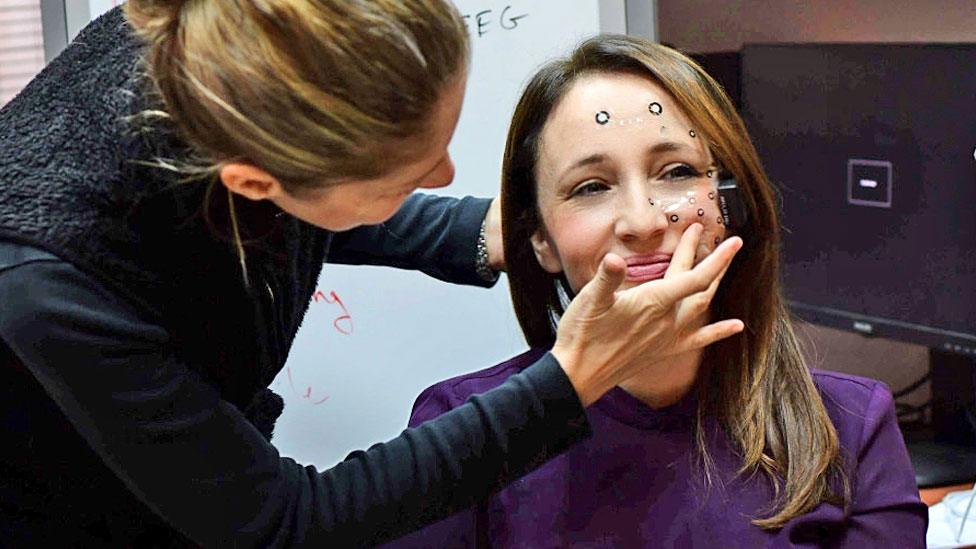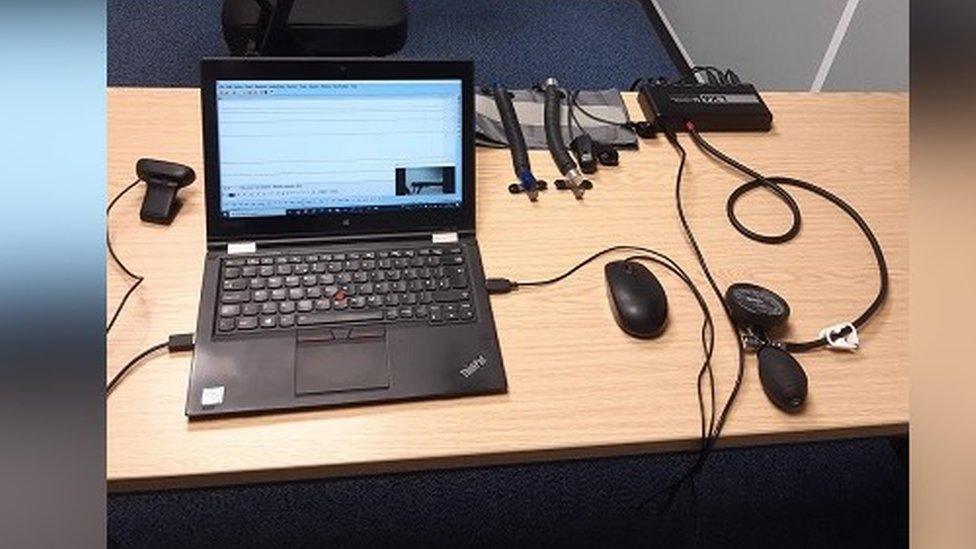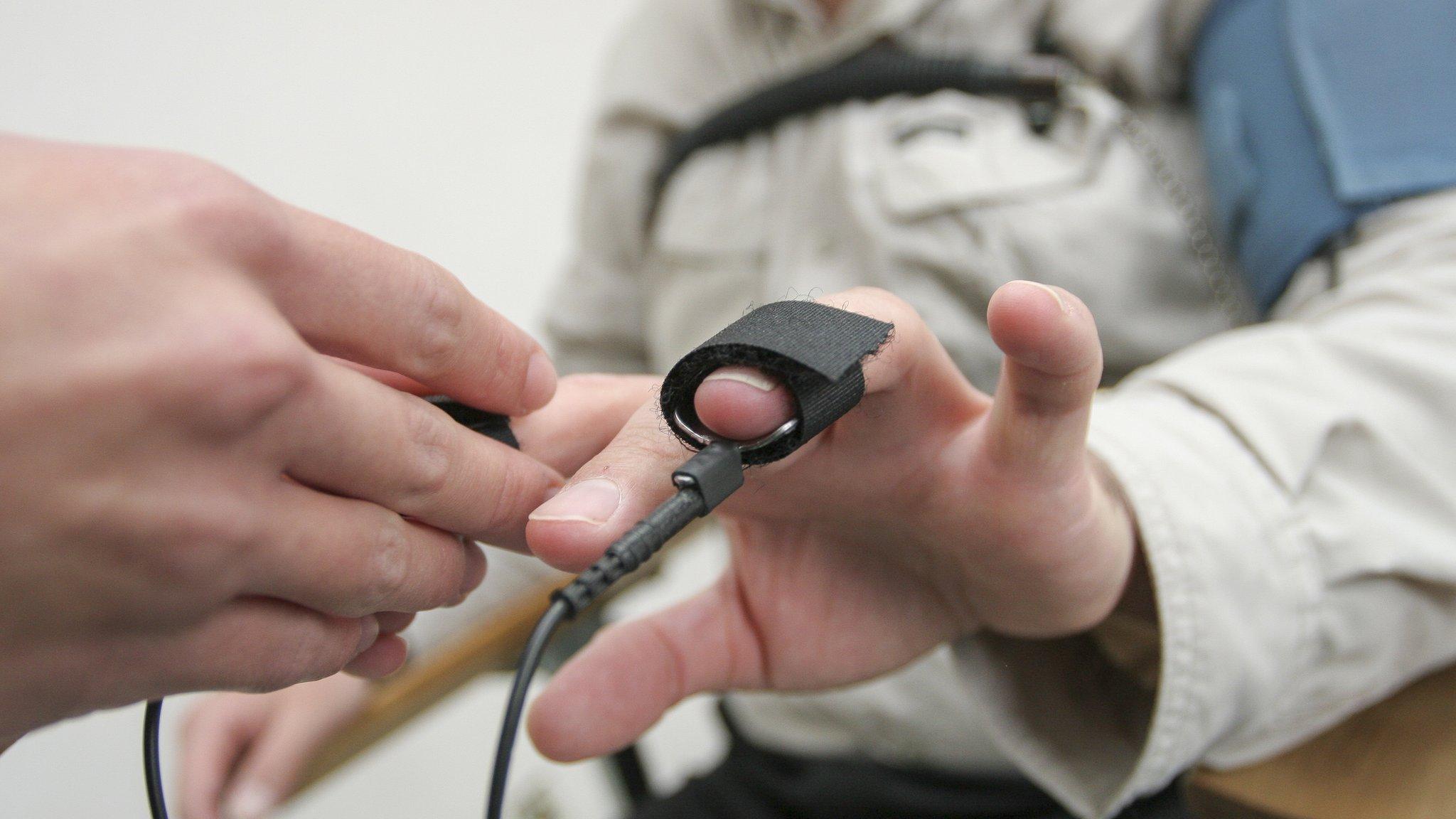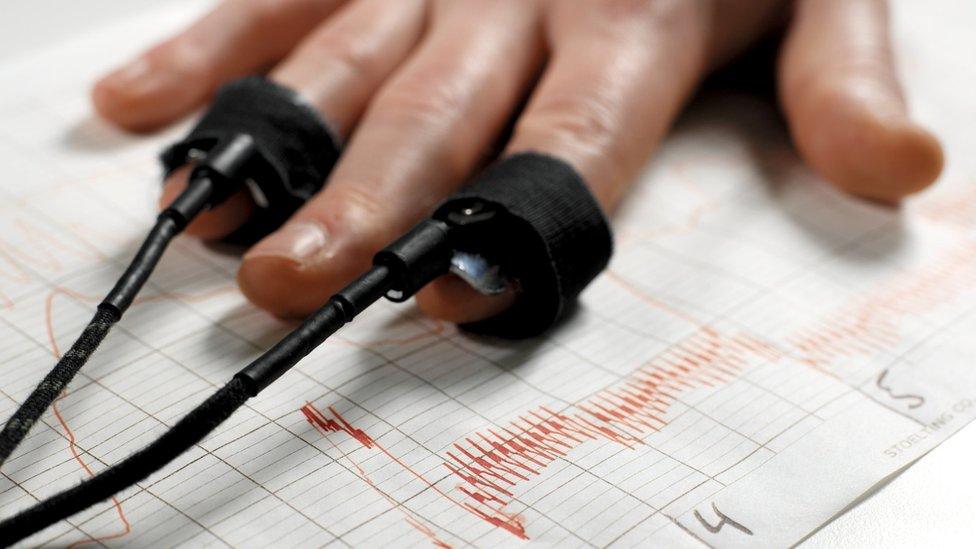North Yorkshire Police use lie detector tests for sex offenders
- Published

The tests measure how a person's heart rate, blood pressure, breathing and sweating change in reaction to questioning
Lie detector tests are being used to investigate sex offenders in North Yorkshire, police have said.
Det Supt Heather Whorriskey of North Yorkshire Police said polygraphs had been used 87 times since the equipment was introduced in October 2020.
The tests work by measuring how a person's heart rate, blood pressure, breathing and sweating change in reaction to questioning.
An academic who researched their use questioned the validity of the results.
According to the Local Democracy Reporting Service, Det Supt Whorriskey was appearing at a public accountability meeting of the North Yorkshire Police, Fire and Crime Commissioner on Thursday.
She told the meeting that many people about to take a test reveal details before it starts as they "realise their answers are likely to give away some untruths".
"It's used quite significantly whenever offenders are using communication devices to assess whether or not they have engaged in further communication with children. We're able to use that to prioritise those devices for examination within our digital forensic unit.
"It identifies unknown risks and offences we would not have known about without having used the equipment. It's absolutely value for money."
'Zombie forensics'
The use of polygraphs is controversial and the results of tests are not admissible in criminal cases in English courts.
They were introduced in 2014 by the Home Office to monitor convicted sex offenders as part of their release on licence.
Dr Kyriakos N Kotsoglou from Northumbria University described the use of lie detector tests as "zombie forensics", criticising "the lack of consistency due to the arbitrary character of polygraph interview".
He said the tests used "deception and psychological manipulation in order to convince the subject that the polygraph works".
"Its purpose and sole potential are not to detect truth, but to enable interviewers to extract confession statements at the price of rationality and legitimacy," he said.

Follow BBC Yorkshire on Facebook, external, Twitter, external and Instagram, external. Send your story ideas to yorkslincs.news@bbc.co.uk, external.
Related topics
- Published31 January 2022

- Published2 March 2022

- Published30 June 2019

- Published4 October 2018
